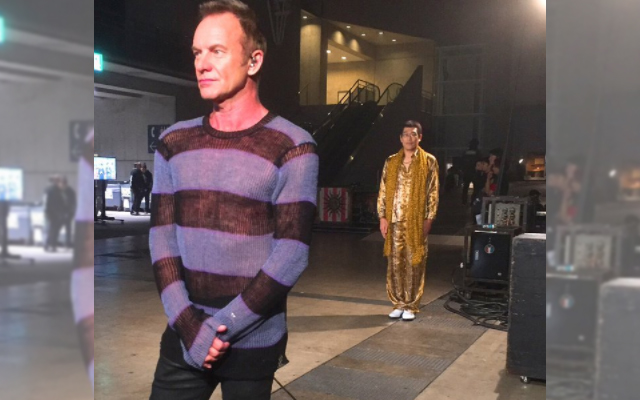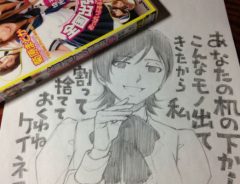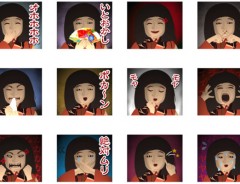
Source: @UNIVERSAL_INTER
Pikotaro Steals The Show Backstage Before Sting’s Live Performance In Japan
- Source:
- @UNIVERSAL_INTER
Related Article
-

Japanese Wife Trolls Husband With Snarky Anime Art Whenever She Finds His Porn Stash
-

Sony Introduces A Mini Wearable Personal Air Conditioner
-

McDonald’s Japan Invites You To Visually Taste Their New Burger In 4D Film
-

Release a rampaging Godzilla into your home with this ‘Burning Godzilla Humidifier’
-

Japanese Amusement Park Builds Gigantic 120-Meter Godzilla Structure
-

Scare The Crap Out Of Your Friends With These Japanese Doll LINE Stamps


Ever since our musically deprived ears were graced with Pikotaro’s “Pen Pineapple Apple Pen,” the animal print-clad musical persona of comedian Kosaka Daimaou has been busy making numerous appearances on live music shows in Japan. Though the internet hype of PPAP may slowly be dying down, Pikotaro’s popularity is still running strong in his home country, and he has even been performing with some of the greatest names in the music industry.
Just recently on November 29th, Pikotaro celebrated a huge milestone for his musical career on a Japanese television program titled "Best Artist 2016." Broadcasting hours of live music to fans everywhere, the show featured performances by popular Japanese artists like AKB48 and Perfume, and even an extra special performance by Sting.
In fact, it was Sting's first performance in Japan in six years, and audiences were glued to their screens as they watched the music legend sing his new song "I Can't Stop Thinking About You" on live Japanese TV.
But even in the presence of an epic musician like Sting, Pikotaro has an uncanny ability to steal the show. Shortly after Universal International tweeted a picture of Sting waiting backstage, fans noticed a suspicious man in gold clothes glowing in the background:
It's unclear whether Sting was aware of Pikotaro lurking behind him, but it was all Twitter users could comment on about the picture, many tweeting that he looks like a golden Buddha statue. But at the end of the day, both artists wowed their fans with their memorable performances (though perhaps in different ways), and entertained us with more than just their voices.